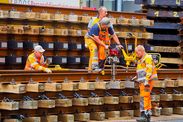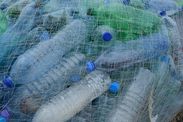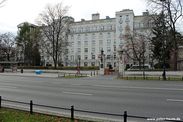-

Analysis 10/2018: Employee Capital Plans are not a substitution for longer retirement age | 2018-09-10
moreEmployee Capital Plans (Pracownicze Programy Kapitałowe, PPK), similarly to Open Pension Funds (Otwarte Fundusze Emerytalne, OFE), are to invest premiums paid in by participants on the capital market.
-

Analysis 9/2018: Chilean pension system (with the introduction by Leszek Balcerowicz) | 2018-08-07
moreThe 1980 pension reform in Chile was a pioneering program of transition from a pay-as-you-go pension system to a funded pension scheme.
-

Analysis 8/2018: Just 5.6 million people produce half of Polish GDP | 2018-07-19
moreThe ongoing discussion in Poland regarding the high variation in wages and income inequality focuses on the way in which added value generated in the economy is distributed between employees (wages), employers (profits) and the state (taxes). This misses a key point: a large variation in productivity in the economy. In Poland, the effort of many people working in inefficient entities is ineffective, which translates into their low wages and small contributions to economic growth.
-

Analysis 7/2018: We need immigrants. How to make Ukrainian workers stay in Poland? | 2018-07-17
moreEconomic migrants rarely displace local labour force. Immigrants are more likely to complement existing labour force creating opportunities for growth and bringing needed skills.
-

Communication COM(2018) 28 of 16 January 2018: A European Strategy for Plastics in a Circular Economy | 2018-05-29
more– 25.8 million tonnes of plastic waste are generated in the EU every year – and the trend is upwards. Of this 39% is incinerated, 31% goes to landfill and 30% is collected for recycling (p. 2).
– About 50% of the plastic waste that is collected for recycling is sent to third countries, often with low environmental standards, of this about 85% is currently shipped to China. At the end of 2017, however, China decided to ban the import of plastic waste. (p. 16)
– The “ambitious set of EU measures” proposed in the Plastics Strategy serves to create a “circular plastics economy (p. 4), in which, throughout the entire “life cycle” of products – design, manufacture, use, disposal – resources are conserved, materials are used and remain in the circular economy for as long as possible and waste is avoided [Action Plan for the Circular Economy COM(2015) 614, p. 2–4; see cepPolicyBrief 2016-06].
– The Plastics Strategy aims to play a part in ensuring that, in future (p. 5) - less plastic waste leaks into the environment – particularly the oceans – and - the EU’s dependence on crude-oil imports is reduced.
-

Analysis 15/2017: Morawiecki’s exposé: declarations and reality | 2017-12-29
moreIn his exposé, Prime Minister Mateusz Morawiecki (PMM) repeated many theses proclaimed for the last two years; some of them are wrong and contradict the experiences of other countries; others, while right, stands in clear contradiction with the actual actions of the government.
-

Analysis 12/2017: Without independent courts, the economy is developing slower and civil liberties are at risk | 2017-09-04
Aleksander Łaszek, Marek Tatała, Jan Toczyńskimore -

-

-

